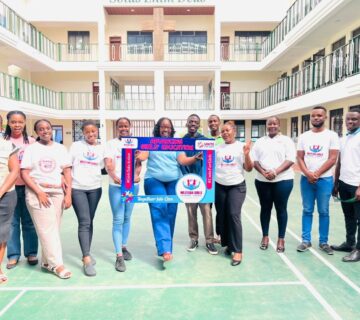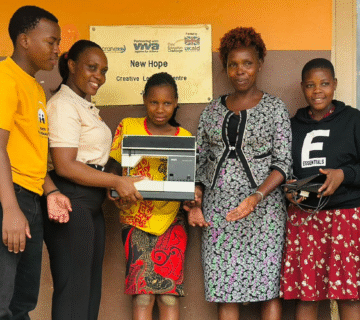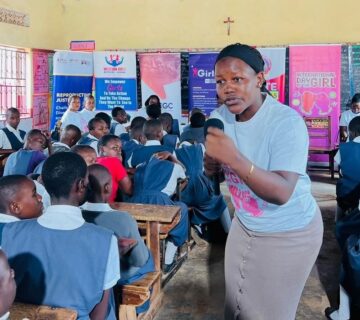The 2025 National CSO Convention was under the theme “The Future of Civil Society in Uganda: The Law, The Money, The Politics” which positioned it as a stock taking and strategy moment for Uganda’s civil society. This event brought together CSO leaders, government officials, development partners and youth leaders for a two-day dialogue that comprised of keynote speeches, panel discussions and breakout sessions. The event started with an opening speech from the Executive Director Uganda National NGO Forum Dr. Moses Isooba whose speech guided on the forum’s framing of the convention’s priorities.
One of the speakers for day one, Dr. Joseph Muvawala emphasized that ‘over-regulation weakens service delivery while collaboration and alignment with Uganda’s development plan strengthen impact. Civil society is not in competition with government, it complements it.’
The convention featured thematic panels and moderated sessions on regulatory compliance, financial sustainability and resource mobilization, digital rights and civic technology, advocacy in practice, local giving and philanthropy and partnerships with the private sector.



Ambassador Matthias Schauer emphasized that collaboration not conflict, is key to achieving Uganda’s ambitious NDP IV goals stressing that government and civil society are not opponents but rather partners in driving Uganda’s development forward.
The keynote speech from Dr Stephen Okello – secretary, National Bureau for NGOs on NGO regulatory environment and compliance emphasized the need for constructive engagement with the National Bureau for NGOs and other regulators. While CSOs expressed concern about necessities and a narrowing civic space, the tone in many sessions pushed for evidence-based dialogue, improved compliance support and coalitions to defend fundamental freedoms. Dr Stephen Okello’s participation signalled a willingness for continued engagement between government and civil society.
The “Politics” aspect asked hard questions like: how do CSOs remain principled while staying effective and safe? and in response to this, Prof. Dr. Busingye Kabumba professor of Law, at Makerere University and Director, Human Rights and Peace Centre urged that legal and rights-based perspectives on civic space, and the rule of law have made a case for strategic, evidence-led advocacy, stronger coalitions and capacity building for risk assessment and staff safety. There was also discussion about how to engage constructively with local and national political actors without compromising core values.
There were several sessions that focused on digital rights, misinformation and safeguarding activists online and this brought panelists like Atuhaire Agatha and Dr Jimmy Spire Sentongo who urged CSOs to invest in basic digital hygiene, adopt secure communication protocols and use technology strategically for outreach and fundraising.
The convention was supported by major development partners like the European Union and German development cooperation through GIZ, the Ministry of Internal Affairs and multiple CSO networks. Ambassador Jan Sadek EU Ambassador to Uganda spoke about partner commitments and the EU’s support for civil society engagement, inclusive governance and other development partners like GIZ that have reaffirmed continued financial and technical support for civil society, aside with calls for improved governance and accountability.
The convention served as both a reality check and a planning hub that acknowledged genuine challenges that are shrinking civic space, stricter regulation and funding fragility while advancing pragmatic responses rooted in collaboration, diversification and risk-aware advocacy. The forum succeeded in creating a platform where government, donors and civil society could publicly name difficult issues and begin to sketch pathways toward resilience and relevance.





No comment